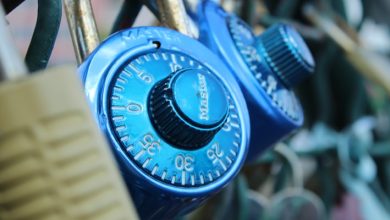How to Secure Your Private Keys: Best Practices

- Why Securing Your Private Keys is Important
- Understanding the Risks of Not Protecting Your Private Keys
- Best Practices for Storing Private Keys Safely
- Tips for Creating Strong and Unique Private Keys
- Protecting Your Private Keys from Cyber Attacks
- The Consequences of Losing Your Private Keys
Why Securing Your Private Keys is Important
Securing your private keys is crucial to protecting your digital assets and maintaining control over your online accounts. Private keys are essentially the passwords that grant access to your cryptocurrencies, emails, and other sensitive information. If your private keys fall into the wrong hands, it could lead to unauthorized access and potential theft of your funds or personal data.
By taking the necessary steps to secure your private keys, you can minimize the risk of cyberattacks and keep your information safe from malicious actors. One of the best practices for securing your private keys is to store them offline in a secure location, such as a hardware wallet or a USB drive. This reduces the risk of your keys being compromised through online hacks or malware.
Furthermore, regularly updating your passwords and using strong encryption methods can add an extra layer of security to your private keys. It’s essential to be vigilant and proactive in safeguarding your keys to prevent any unauthorized access or breaches. Remember, the security of your private keys ultimately determines the safety of your digital assets, so it’s crucial to prioritize their protection.
Understanding the Risks of Not Protecting Your Private Keys
When thinking about the risks of not protecting your private keys, it is crucial to understand the potential consequences that could result from their exposure. Private keys serve as the gateway to your digital assets, such as cryptocurrency or sensitive information, and if they fall into the wrong hands, it could lead to devastating outcomes.
One significant risk of not safeguarding your private keys is the possibility of unauthorized access to your accounts. If someone gains access to your private keys, they can easily impersonate you and carry out fraudulent activities, steal your funds, or compromise your confidential data. This could result in financial loss, reputation damage, and legal consequences.
Another risk to consider is the potential for manipulation or tampering with your data. Without proper protection of your private keys, malicious actors could alter the information stored in your accounts, leading to misinformation, data breaches, or even identity theft. This could have far-reaching implications on your personal and professional life.
Moreover, not securing your private keys can expose you to the risk of losing access to your own assets. If you lose or misplace your private keys, you may be locked out of your accounts permanently, with no way to retrieve your funds or information. This could be a frustrating and irreversible situation that could have been prevented with proper security measures in place.
Overall, understanding the risks of not protecting your private keys is essential for maintaining the security and integrity of your digital assets. By implementing best practices for securing your private keys, such as using encrypted storage, multi-factor authentication, and regular backups, you can mitigate these risks and safeguard your valuable information from potential threats.
Best Practices for Storing Private Keys Safely
When it comes to storing your private keys securely, there are several best practices you should follow to ensure that your sensitive information remains safe from unauthorized access.
- One of the most important things to remember is to never store your private keys on a device that is connected to the internet. This can leave them vulnerable to hacking and other security threats.
- Instead, consider storing your private keys on a hardware wallet or a secure USB drive that is not connected to the internet. This will help to keep your keys safe from online threats.
- It’s also a good idea to create a backup of your private keys and store them in a separate, secure location. This way, if your primary storage device is lost or damaged, you can still access your keys.
- When creating backups of your private keys, be sure to encrypt them with a strong password to add an extra layer of security. This will help to protect your keys in case they fall into the wrong hands.
- Finally, consider using a secure password manager to store and manage your private keys. This can help you keep track of your keys and ensure that they are stored securely.
By following these best practices for storing your private keys safely, you can help to protect your sensitive information and reduce the risk of unauthorized access to your accounts and assets.
Tips for Creating Strong and Unique Private Keys
When it comes to securing your private keys, creating strong and unique private keys is essential for protecting your assets. Here are some tips to help you generate secure private keys:
- Use a combination of random letters, numbers, and special characters to create a complex private key.
- Avoid using easily guessable information such as your name, birthdate, or common phrases as part of your private key.
- Consider using a passphrase in addition to your private key for an extra layer of security.
- Store your private keys in a secure location, such as a hardware wallet or encrypted USB drive, to prevent unauthorized access.
- Regularly back up your private keys and keep them in multiple secure locations to avoid losing access to your assets.
By following these best practices for creating strong and unique private keys, you can help ensure that your assets remain safe and secure from potential threats.
Protecting Your Private Keys from Cyber Attacks
One of the crucial aspects of securing your private keys is protecting them from cyber attacks. Cyber attacks have become increasingly sophisticated, making it essential to take proactive measures to safeguard your sensitive information.
There are several best practices you can implement to protect your private keys from falling into the wrong hands. First and foremost, ensure that you store your private keys in a secure location, such as a hardware wallet or encrypted USB drive. Avoid storing them on devices that are connected to the internet, as this can make them vulnerable to hacking attempts.
Furthermore, regularly update your software and operating systems to patch any security vulnerabilities that cyber attackers could exploit. Be cautious when accessing your private keys on public Wi-Fi networks, as these are often unsecured and can be easily compromised by hackers.
Consider using multi-factor authentication to add an extra layer of security to your private keys. This could involve requiring a password, biometric scan, or security token in addition to your private key. By implementing these measures, you can significantly reduce the risk of unauthorized access to your private keys.
In conclusion, protecting your private keys from cyber attacks is paramount in ensuring the security of your digital assets. By following these best practices and remaining vigilant against potential threats, you can safeguard your private keys and maintain peace of mind knowing that your sensitive information is secure.
The Consequences of Losing Your Private Keys
Losing your private keys can have serious consequences for the security of your digital assets. Without access to your private keys, you may permanently lose the ability to access your cryptocurrency or other sensitive information stored in your digital wallets. This can result in financial loss, as well as potential damage to your reputation if the information falls into the wrong hands.
Additionally, losing your private keys can make it difficult or impossible to prove ownership of your digital assets. This can lead to legal issues if you are unable to demonstrate that you are the rightful owner of the assets in question. In some cases, this could even result in legal disputes or the loss of your assets altogether.
Furthermore, losing your private keys can leave you vulnerable to hacking or other malicious attacks. If someone else gains access to your private keys, they can potentially steal your digital assets or use them for fraudulent purposes. This can have far-reaching consequences, including financial loss, identity theft, and damage to your personal or professional reputation.
Overall, it is crucial to take the necessary precautions to secure your private keys and protect your digital assets. By following best practices for key management and storage, you can minimize the risk of losing your private keys and mitigate the potential consequences of such a loss. Remember, prevention is always better than cure when it comes to safeguarding your digital security.



